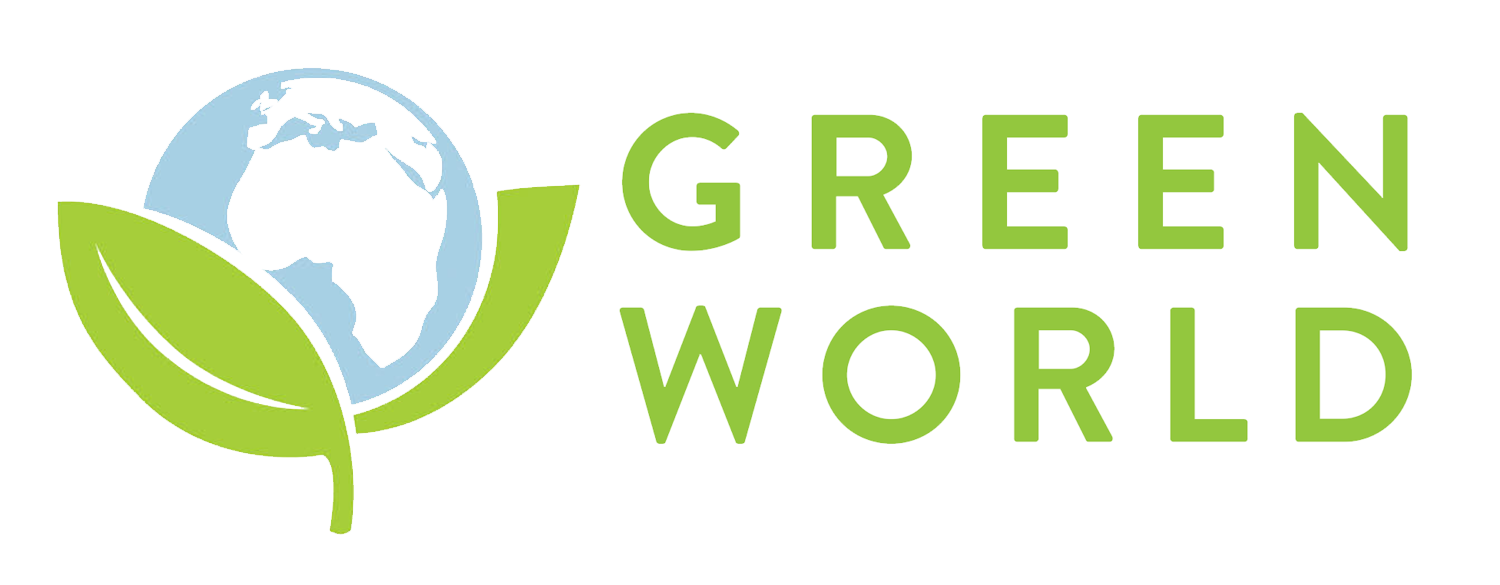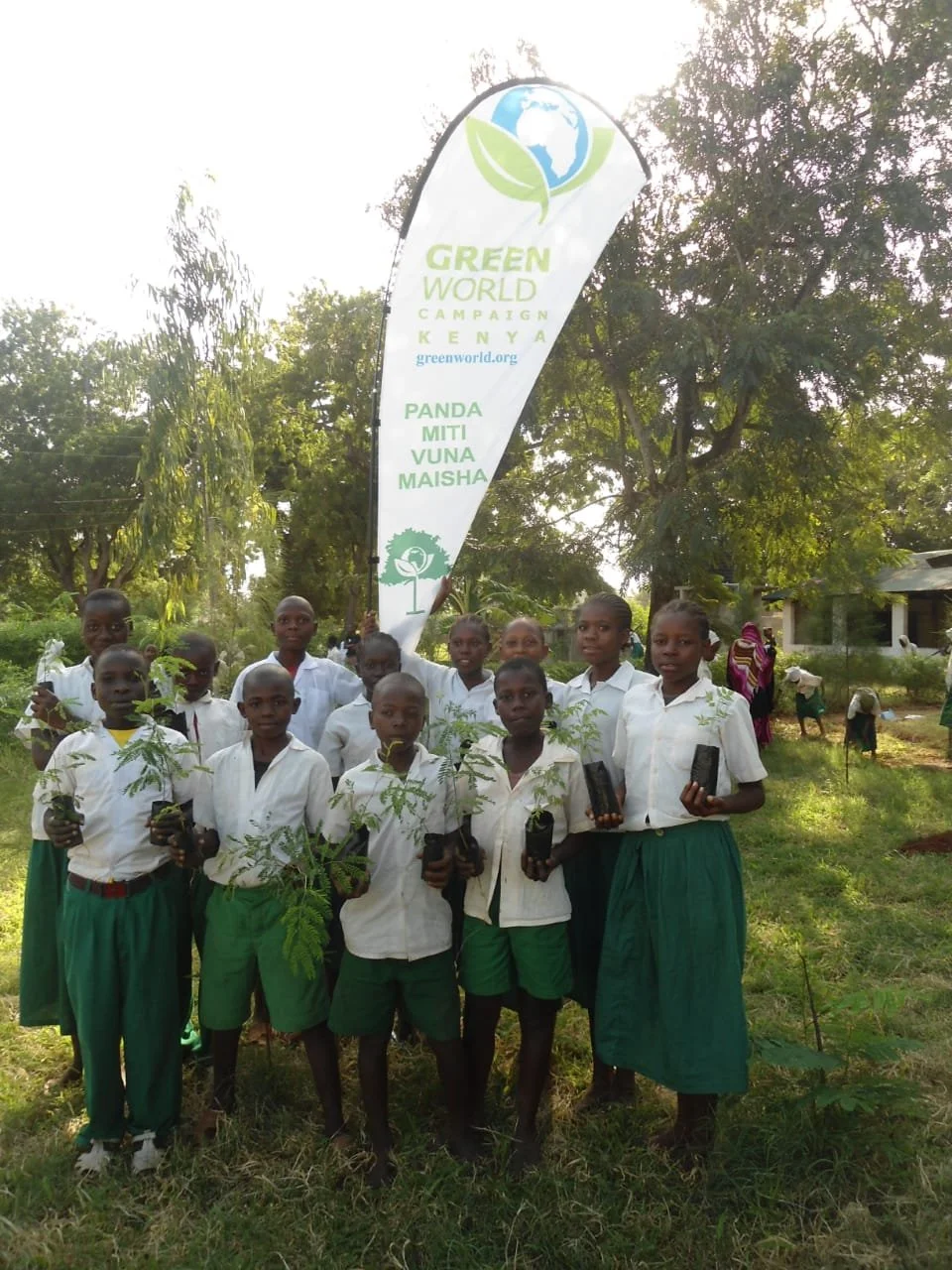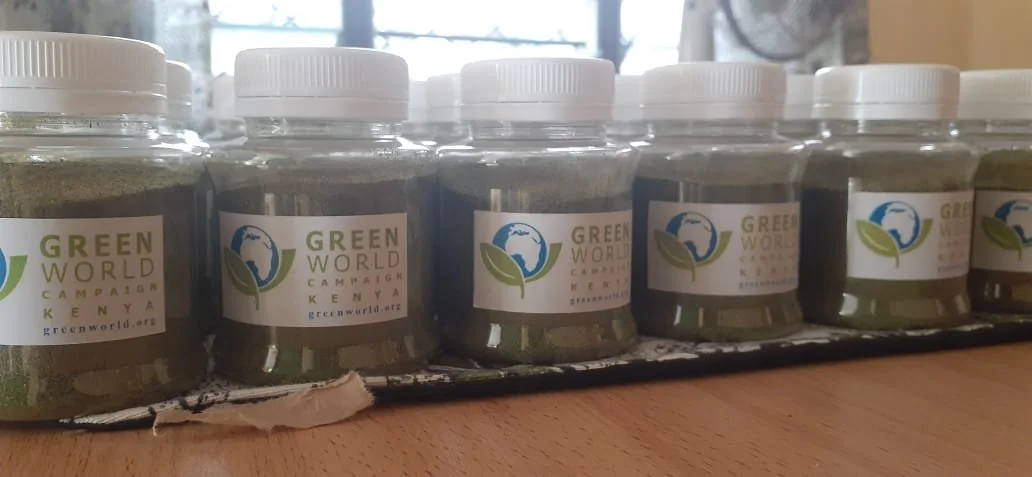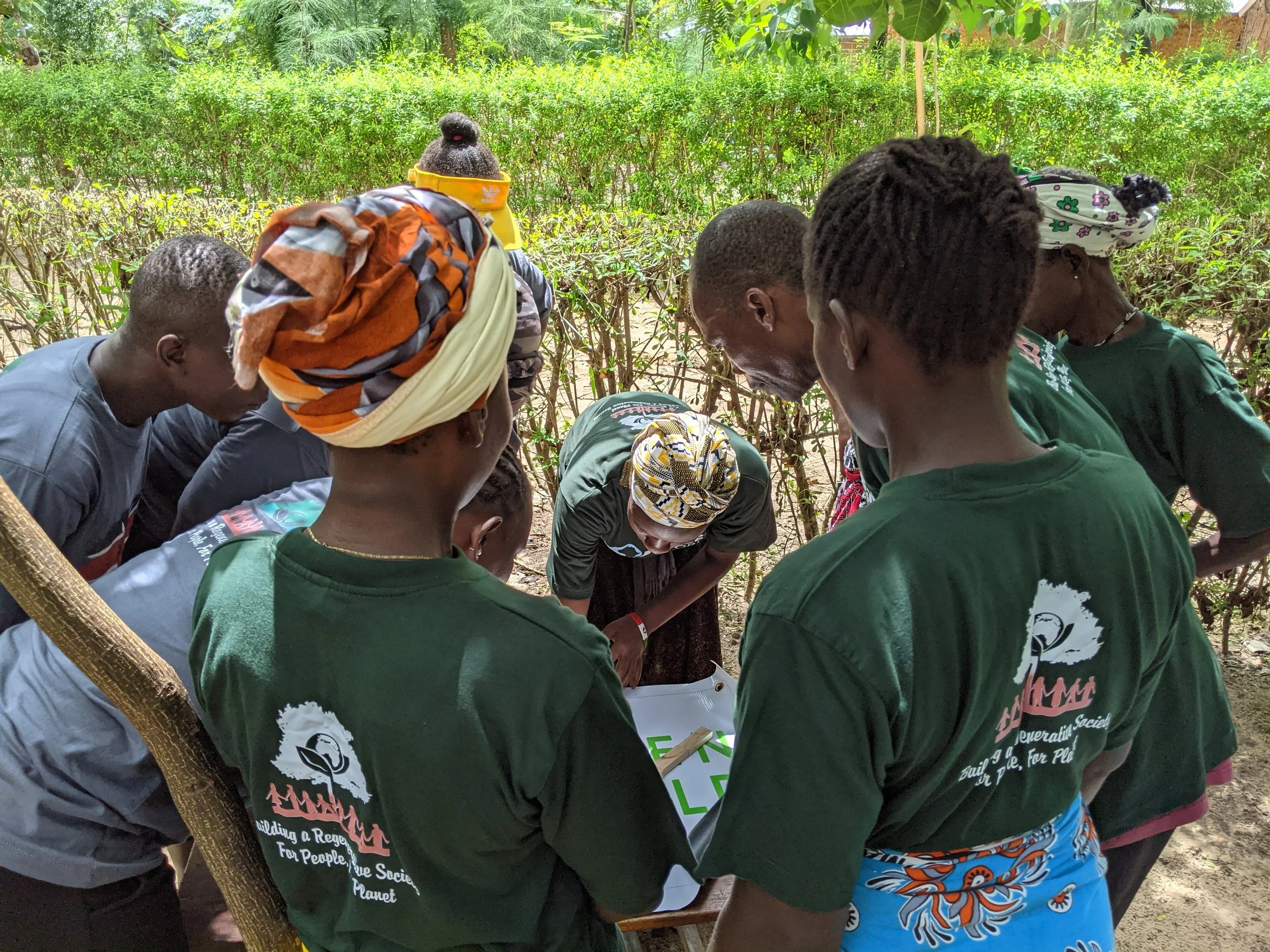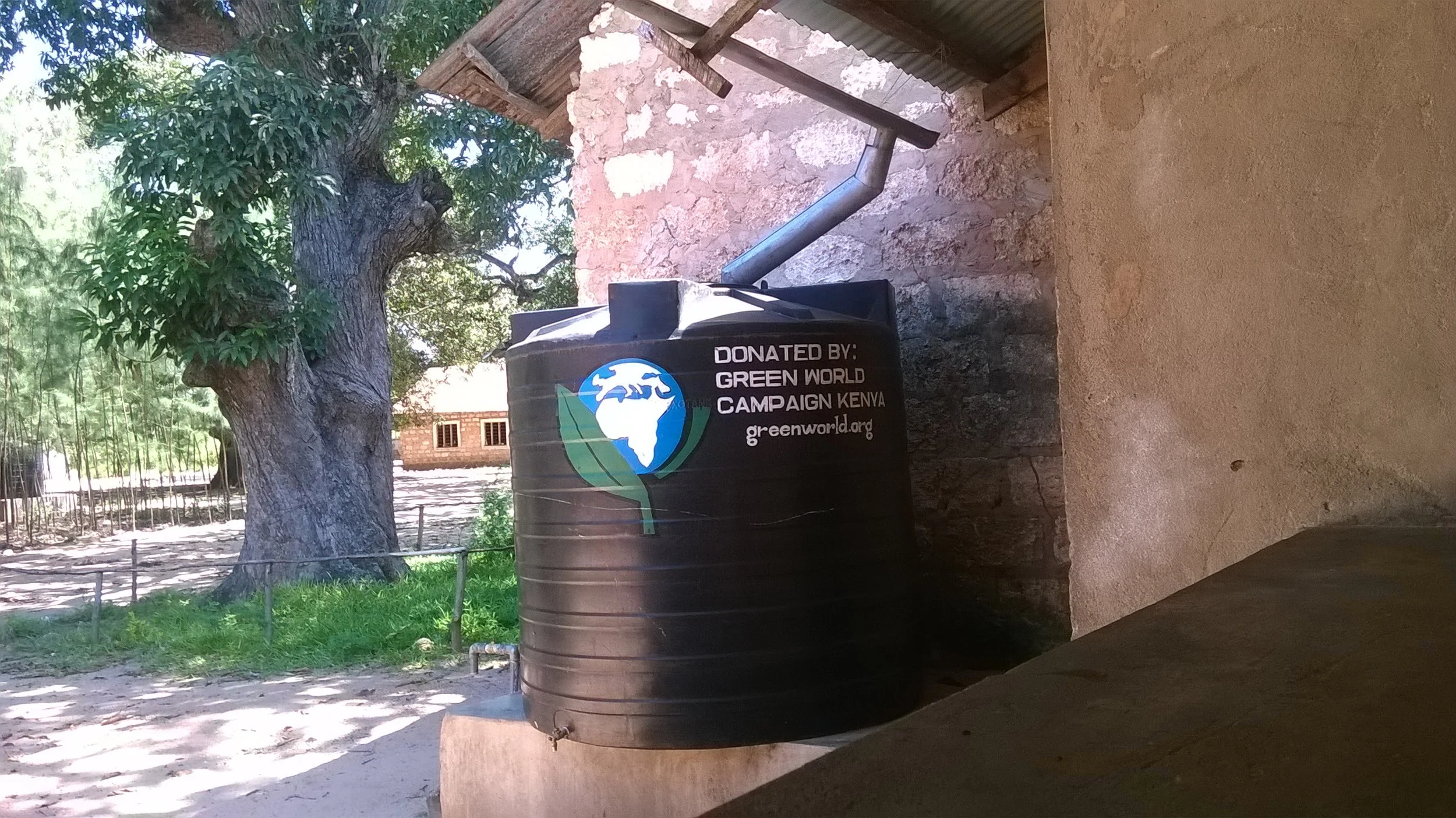
KENYA
Who We Are
Green World Campaign Kenya is a non-governmental organization dedicated to environmental regeneration and community empowerment. Established in 2010 and officially registered under the Societies Act of Kenya in 2011, we have been co-designing solutions with indigenous coastal communities to restore degraded landscapes, combat climate change, and improve livelihoods.
We operate in Mombasa, Kilifi, and Kwale counties, working closely with schools, youth groups, smallholder farmers, women’s groups, and faith-based organizations to create long-term sustainable impact.
Our Goals
Regenerate degraded landscapes using nature-based solutions.
Combat climate change through sustainable land management.
Improve livelihoods by empowering communities with financial literacy and sustainable practices.
Embracing a systems approach, our initiatives focus on:
Agroforestry – Training farmers to adopt biodiverse farming, shifting away from monoculture while integrating climate-smart agriculture for better resilience.
Woodlands (Kaya Forests) – Partnering with Kaya elders to educate younger generations on traditional forest conservation methods that have preserved these sacred forests for centuries.
Mangrove Restoration – Collaborating with local groups to restore mangrove ecosystems along the Indian Ocean, strengthening biodiversity and coastal resilience.
Through these efforts, Green World Campaign Kenya continues to work towards a greener, more sustainable future for coastal communities.
Our core Initiatives
At Green World Campaign Kenya (GWC-K), schools are more than centers for academic instruction—they are vibrant Action Learning Centers that serve as incubators for environmental leadership, community education, and sustainable development. Through our Green World School Clubs and specialized school-based curriculum, we have transformed schools into dynamic hubs of learning and regeneration, impacting over 200,000 pupils across Kenya’s coastal and arid regions.
Our approach is rooted in systems thinking, integrating environmental education, agroecology, and community engagement to address interlinked challenges of climate change, land degradation, and food insecurity.
Key Components of the Program:
1. Hands-on Eco-Education through Green World School Clubs
Students learn to establish and manage thriving tree and vegetable nurseries, gaining practical skills in agroecology, afforestation, and sustainable agriculture. Each school produces and grows (In situ or in community lands) over 1,000 biodiverse indigenous tree seedlings per planting season, directly contributing to local reforestation, supporting biodiversity and helping communities sustain conservation efforts.
2. Schools as Community Resource Centres
Schools are positioned as entry points for broader community engagement—training smallholder farmers, women, youth groups, and faith-based organizations on climate resilience, water harvesting, reproductive health, and life skills. This intergenerational learning model bridges traditional knowledge and modern sustainability practices.
3. Climate Literacy and Youth Empowerment
By integrating climate education into the curriculum, we are building the next generation of environmental stewards. Students not only internalize ecological values but also apply them within their homes and communities, becoming active participants in climate adaptation.
4.Agroecology and Sustainable Livelihoods
In response to challenges faced by communities in arid and semi-arid lands (ASALs)—including soil erosion, saltwater intrusion, and erratic rainfall—GWC-K provides training on agroecological systems that support biodiversity, enhance soil fertility, and improve food security. Field guides are co-created with communities to ensure contextual relevance and long-term adoption.
5. Afforestation, Reforestation, and Kaya Forest Restoration
Our afforestation and reforestation efforts, including the restoration of sacred Kaya forests, local woodlands, and mangrove ecosystems, are implemented using a holistic, farmer-inclusive approach. These efforts not only sequester carbon and protect shorelines but also reinforce cultural heritage and environmental identity.
6. Systems-Based Approach to Resilience
By combining ecological education, agroforestry training, and regenerative land-use practices, we are shifting farming systems away from monocultures toward diverse, resilient ecosystems that balance productivity with long-term sustainability.
Food security and AgrofoRestry
This program is designed to strengthen the capacities of smallholder farmers in ASAL (Arid and Semi-Arid Lands) regions by promoting resilient and supporting biodiversity through the integration of 21st-century technologies to support both agroforestry and food security. These include adoption of climate-smart agriculture, regenerative farming techniques, digital advisory tools, drip irrigation systems, organic composting, and the incorporation of drought-tolerant, nutrient-dense crops in food systems.
A core focus of the program is the promotion of Moringa oleifera within agroforestry systems. As a drought-resilient, fast-growing, and highly nutritious tree, Moringa serves as a key component in biofortification strategies—addressing micronutrient deficiencies in vulnerable populations. Moringa leaves and pods are rich in iron, calcium, vitamins A and C, and essential amino acids, making them a powerful “miracle” and “superfood” that enhances household nutrition when integrated into daily diets.
This program applies a systems approach and systems thinking framework, recognizing the interdependence between ecological integrity, agricultural productivity, and community well-being. Our interventions are grounded in the understanding and preservation of ecosystem services, such as soil fertility, water retention, pollination, and carbon sequestration. Implementation occurs across woodlands and cultivated farmlands, ensuring that landscape restoration, food production, and livelihood improvement work hand-in-hand.
By combining modern agroecological technologies with indigenous knowledge and holistic design, we are enabling smallholder farmers to create sustainable, climate-resilient food and farming systems that are adaptable to the challenges of the 21st century.
Special Program
The Special Program is a flagship initiative of Green World Campaign Kenya (GWC-K) that applies a systems approach and systems thinking to address the interconnected challenges faced by smallholder farmers,youth and schools in the arid and semi-arid lands (ASAL) of Mombasa, Kilifi, and Kwale Counties. The project pays deliberate attention to ecosystem services to build resilience among farming communities while simultaneously addressing underlying social, economic and ecological vulnerabilities.
Background and Rationale
The project was launched in the wake of the COVID-19 pandemic, a time when GWC-K identified a critical gap—a sharp rise in teenage pregnancies, especially in marginalized communities where we operate. This alarming trend signaled deeper systemic issues related to poverty, lack of access to education, and weak social support systems, particularly for adolescent girls and young people in rural farming households.
Recognizing that the health and agency of young people are inseparably linked to household and agricultural resilience, GWC-K initiated this program to build the capacity of smallholder farmers, schools and youth through integrated, context-specific interventions.
Target Groups
Smallholder farmers (including parents and caregivers)
Youth, especially teens and pre-teens (ages 10–19), with a focus on girls at risk of early pregnancy and school dropout
School going children
This program empowers individuals, fosters self-sufficiency, and strengthens communities, ensuring both social and economic well-being alongside environmental restoration.
Core Components and Training Areas
The Special Program delivers life skills education that strengthens household resilience and builds long-term adaptive capacity in ASAL communities. Key training areas include:
Financial Literacy: Enables farmers and youth to manage scarce resources, plan for future needs, and reduce dependency during climate or market shocks.
Leadership and Integrity: Builds responsible leaders in families and communities, essential for collective action and local decision-making.
Conflict Management: Equips participants with nonviolent communication and problem-solving skills, fostering social cohesion in resource-stressed environments.
Stress Management and Self-Awareness: Helps individuals cope with mental health challenges, reducing incidences of depression, gender-based violence, and harmful coping strategies.
Menstrual Hygiene Management (MHM): Ensures that adolescent girls stay in school and participate in training activities without stigma or interruption, directly impacting education and future livelihood opportunities.
Sexual and Reproductive Health Education: A crucial component, particularly in ASAL regions where cultural taboos and lack of information contribute to early pregnancies and poor maternal health outcomes. Educating both parents and youth creates a shared understanding of responsibilities, rights, and long-term wellbeing.
AUTOMATED INCENTIVES FOR REGENERATIVE STEWARDSHIP (AIRS)
The Automated Incentives for Regenerative Stewardship (AIRS) project is a fintech initiative designed to promote environmental restoration and regenerative economic practices in Kenya. AIRS leverages satellite remote sensing, on-ground data collection, and blockchain technology to incentivize sustainable land management. By integrating these technologies, AIRS ensures that individuals and communities engaged in reforestation, soil conservation, and water system restoration are fairly compensated for their efforts.
AIRS combines satellite remote sensing and on-ground data collection to verify restoration efforts, ensuring transparency and automation. This system addresses the funding gap for African smallholder farmers, who play a critical role in restoring degraded land.
By turning regenerative results into tradeable digital assets, AIRS creates a decentralized economy for climate action, allowing global investors and donors to support verified environmental efforts. The project is already scaling up in 2025, driving sustainable livelihoods while restoring ecosystems.
AIRS supports communities to access much needed resources that supports them with farm inputs and water harvesting equipment.
